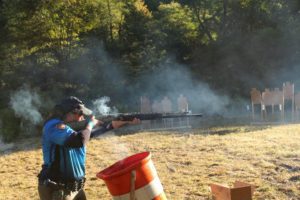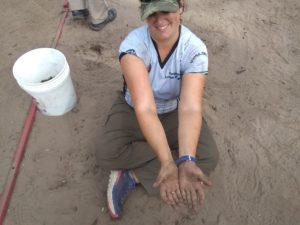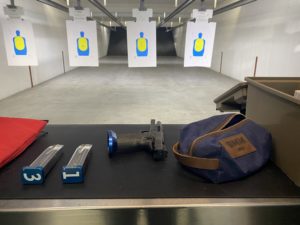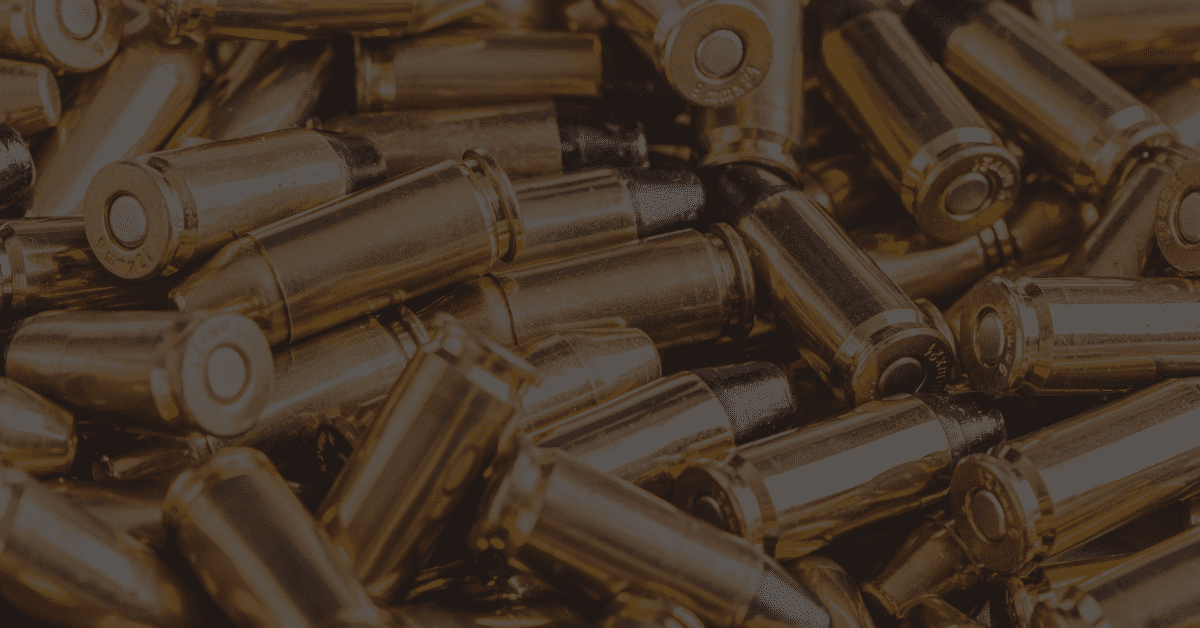Why should you care about lead poisoning? For one, once lead is in your system, it’s hard to get it out. And secondly, chemical lead remediation is hard on the body and can cause some serious side effects. This blog is very personal to me and was a wake-up call I needed to take lead poisoning a lot more seriously.
If you’ve never taken a lead test and you spend a decent amount of time on the range, loading ammunition, picking up brass, etc., I highly recommend you ask your doctor to order the blood panel. Once I popped for higher than normal lead levels, I realized that I needed to make some changes. I asked the gun community for help and they so delivered. I wanted to share all the tips I received from competitive shooters, range workers, instructors, and more because maybe these will help you too.
Why You Should Care
Before I get started, I did want to share a couple of stories that I heard after asking for help with lead remediation. My friend has two small children and he works at a range every day of his life. When he comes home, what does he do? He picks up his kids, hugs them, and doesn’t think twice about it. Well, lead can be on your clothes, shoes, in your hair, and is easily transferable onto others. Kids are more susceptible and unfortunately, they put everything in their mouth, which is exactly where lead gets into the system. He has had to take some precautions (that are not unreasonable) to keep his family safe so they don’t get poisoning as well.
Now here’s the sad story that was shared with me. A friend’s nephew, a 2-year-old, was hospitalized with lead poisoning and the parents were to blame. It wasn’t intentional, but their recreational shooting habits and not thinking about lead on them after the range was the source of the lead. Don’t let an incident be the wake-up call you need.
Lead Poisoning Prevention Tips
Prevention is key to keeping you and your family safe. Here are all of the wonderful tips and products that were shared with me from the shooting community:
- Always wear gloves when resetting steel. And don’t buy super cheap gloves that tear easily. Go with a nitrile glove. Wear gloves when cleaning your equipment, handling spent brass, and even when reloading ammo.
- Have D-Lead or Lead Off wipes in your range bag, your truck (or car), to use when done at the range or as spot clean-ups. This doesn’t replace washing your hands with soap but is a quick fix that can do a lot of preventive good. Don’t just wipe your hands, but also your arms and even your cell phone.
- Wash your hands with lead removal soap and cold water as soon as possible, especially before you eat. Use this soap after you clean your firearms, load your magazines, load ammo, and any time you come into contact with lead.
- Try to minimize how much you touch your food while at the range. I get hangry too. I’m also snackin’. Try to eat while it’s still in the wrapper and if you have a water bottle, consider getting one you can open hands free, or else the mouthpiece or cap can get exposed to lead. Use those wipes before eating if there’s not a sink in sight.
- Lead Poisoning 101
- Eat with the wrapper on without touching the food
- There’s always a pickle at the range
- Keep your range clothes separate from other clothes and use D-lead detergent. I didn’t even think about my range clothes or shoes when coming home. If you have a mudroom or live in a private area, starting stripping as soon as you walk in the door or get home! The less tracking of lead you can do, the better. Store your range shoes in a different location, in a garage, or other location.

Lead gets on range clothes
- If you know you have plans after a range session or won’t be going home anytime soon, keep a complete change of clothes with you to change into. We love going to eat out with our buddies after a range day or competition, but how often are we touching our clothes, hugging, and going back to eating our food with contaminated hands?
- This one takes a bit more effort and is more about awareness. Lead only enters through the mouth, nose, eyes, and other sensitive areas. Avoid touching any of these areas at the range. Don’t bite your nails. Don’t rub your eyes. We do this so regularly without even thinking about it that we have to start being aware of it when shooting.
- I pick up brass. I’m a range chicken. I’m not going to quit that anytime soon. If you’re picking up brass, tumbling brass, cleaning it, wear a mask/respirator and gloves. And always wash your hands with D-lead soap after this.

Picking up brass can lead to lead poisoning if you don’t take precautions. Don’t be me!
- Indoor ranges can be more dangerous to shoot in. Ask the range for their lead level information and avoid any with high lead poisoning possibilities. Wear a respirator when shooting indoors.

Shooting in indoor ranges can create a higher risk for lead poisoning
- Eat foods rich in Iron and Vitamin C. Fresh garlic and cilantro are beasts when it comes to removing lead from your system. Other foods/drinks include:
- wild blueberries
- lemon water
- barley grass juice powder
- Atlantic dulse
- curry
- green tea
- tomatoes
- Supplements with chlorella in them can be helpful. Consider a quarterly dosage to help your body remove lead. Probiotics, zinc, vitamin B, spirulina, selenium, and milk thistle are also helpful.
With a plethora of natural ways to keep your body free from lead poisoning, there is no excuse for having high levels. Take preventative measures seriously and especially keep your kids and family members safe. I’m looking forward to seeing my next test results later on down the road after implementing so many of these tips!
A Special Thank You
I want to give a huge thank you to these fellow shooters below. All of their contributions to my post are what made this blog happen. Thanks for caring enough to stop and share tips, foods to eat, products to use, and precautions to take!
Jake Latola
Maylin Thompson
Mike Stoker
Bruce Davidson
Becky Yackley
Erik Kopp
Chris Workman
Charles Mulé
Kevin Hartman





